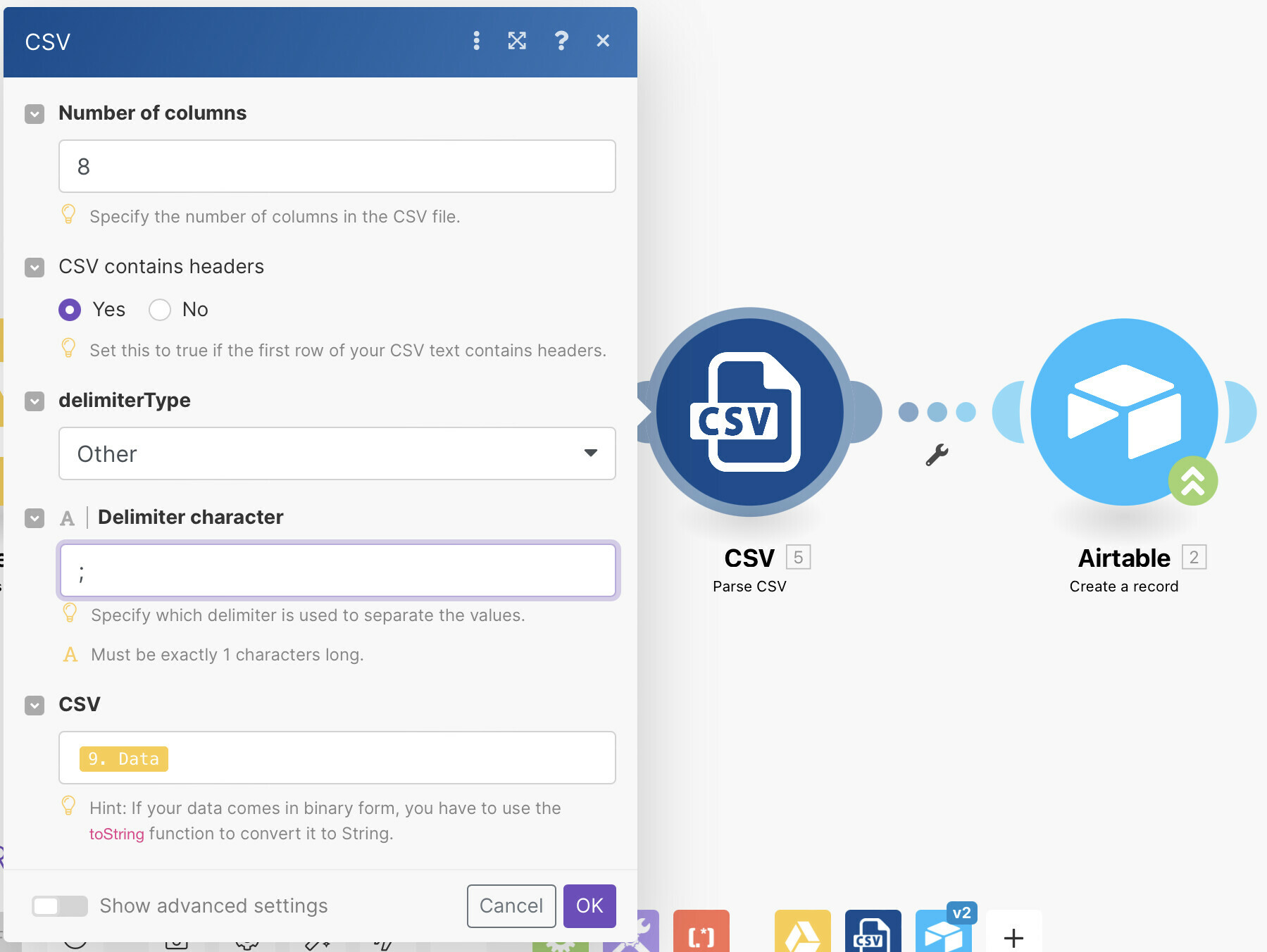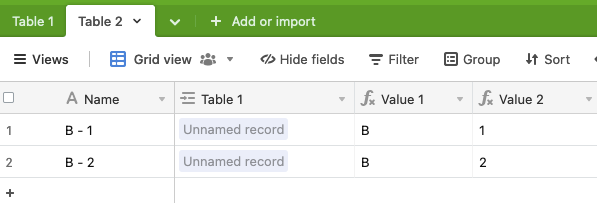Say I have a base with two tables, A and B, where the primary field of B (a single line text field with the name B_name) has values B, 1 and B, 2, and where A has a field, B_name, linking to B.
And say I now want to use the CSV import tool to import a single record into table A:
A_name,B_name
A1,"B, 1, B, 2"
When I import this using the CSV import tool, the correct links to B, 1 and B, 2 are not established. How can I either
- Format the CSV I’m importing, or
- Configure the import in the CSV import tool
such that the correct links are established?
Thank you!





